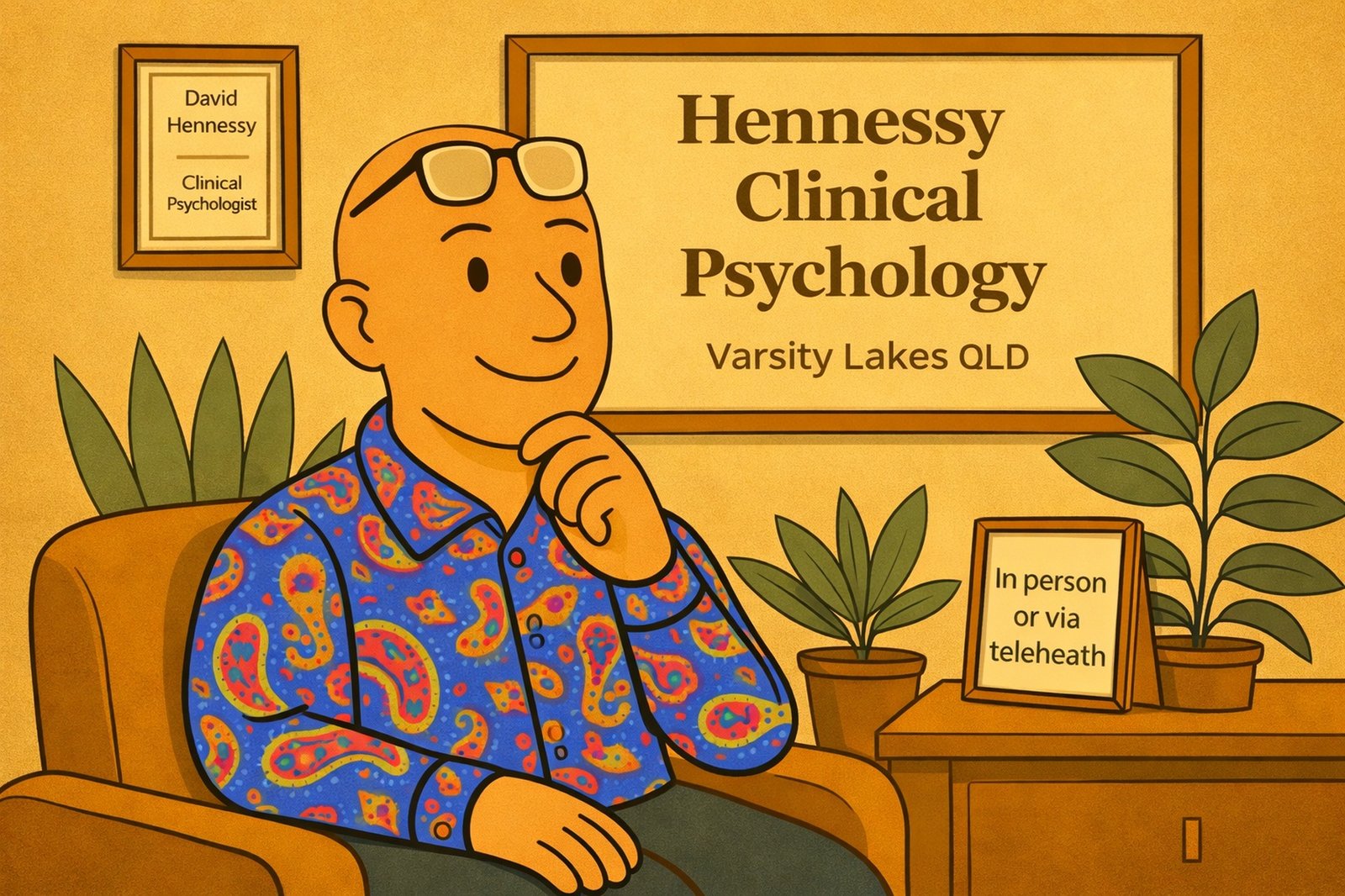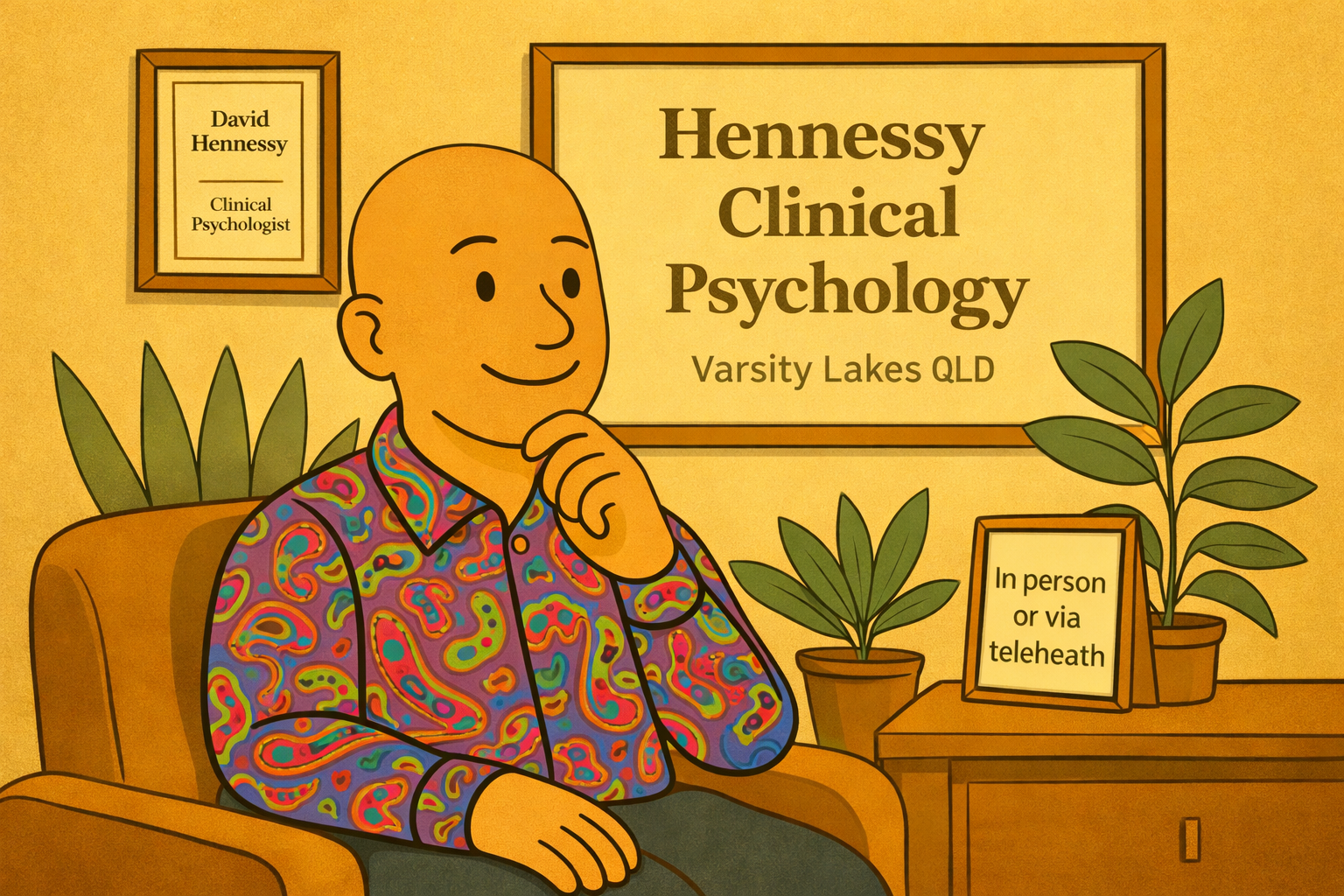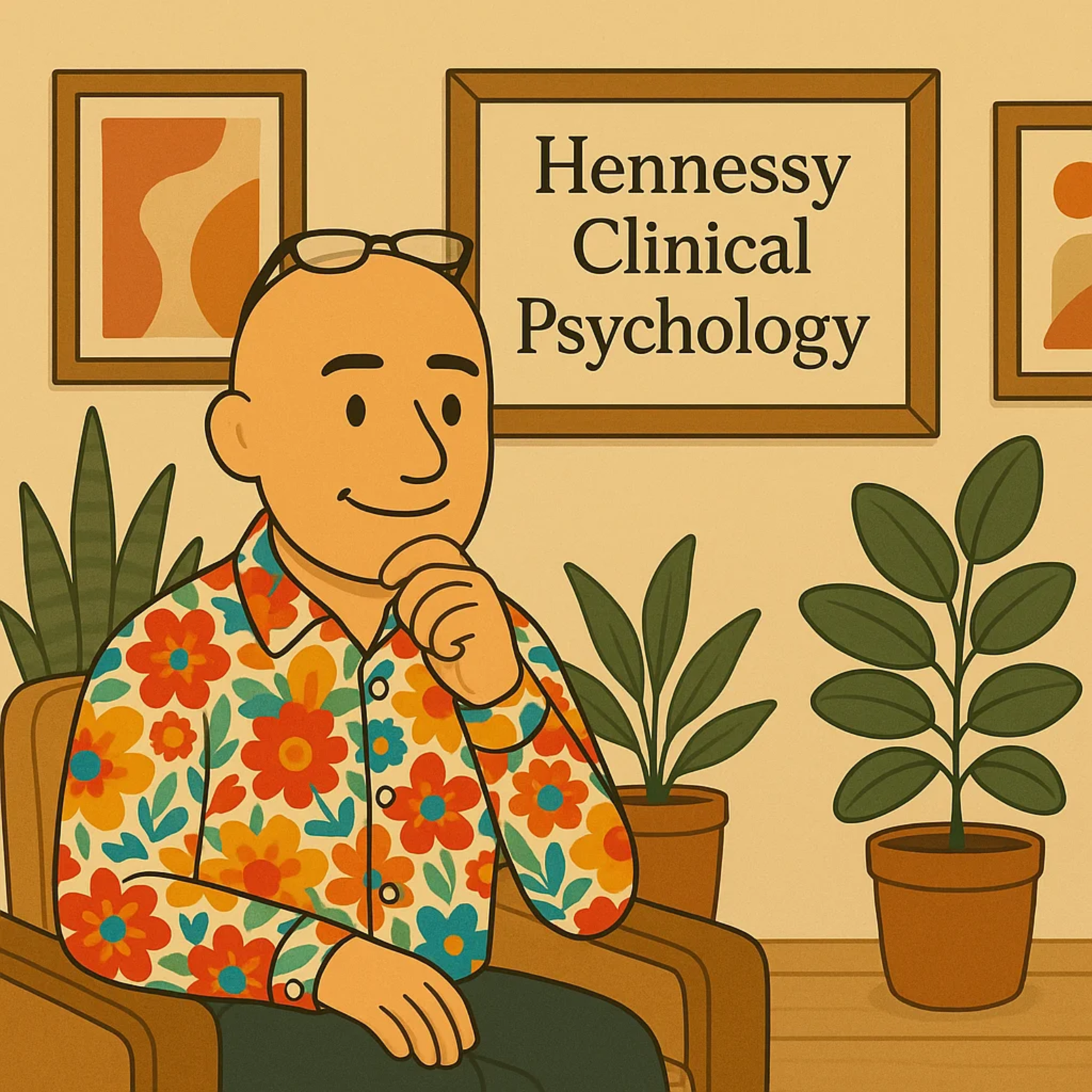Understanding Complex Mental Health Presentations in Adults
By David Hennessy, Clinical Psychologist

Introduction
Mental health challenges in adulthood can vary widely. While some individuals experience relatively isolated concerns, such as a single episode of depression or anxiety, others present with more complex mental health needs. These presentations often involve overlapping conditions, longstanding patterns, and significant impacts across work, relationships, identity, daily activities, and physical wellbeing.
At Hennessy Clinical Psychology, we understand that complex presentations need careful, thoughtful, and individualised care. To achieve the best outcomes, a person’s experiences need to be understood deeply and met with compassion, patience, and clinical skill. This is where professional training, clinical experience, and a relatable therapeutic style support an insightful and compassionate client-centred focus that places the person above the complexity of their symptoms.
What Makes a Mental Health Presentation Complex
Complex presentations in adults often involve:
- Multiple diagnoses, such as depression with post-traumatic stress, bipolar disorder with substance use difficulties, or complex trauma co-occurring with psychotic experiences[1][2].
- Longstanding symptoms beginning in childhood or adolescence, shaped by early experiences, attachment patterns, and environmental stressors[3].
- Functional impacts extend to employment, study, relationships, and activities of daily living such as personal care, meal preparation, and attending appointments[2].
- Psychotic experiences, including hallucinations, altered beliefs, or sensory changes[4][5].
- Trauma histories influence emotional regulation, coping patterns, and relational safety[3][6].
- Difficulties with trust and connection that require consistency, safety, and attuned therapeutic care[7].
- Physical health concerns that commonly accompany complex mental health presentations[8].
No two stories are identical. Complexity reflects a rich and meaningful history that deserves careful understanding.
Examples of Complex Presentations
- Bipolar disorder combined with alcohol dependence and a complex trauma history.
- Chronic depression with emotional regulation difficulties.
- Psychosis within schizophrenia, schizoaffective disorder, or trauma-related dissociation.
- Borderline personality traits combined with substance use and attachment disruptions.
Each pathway is unique. Effective care meets the individual where they are, not where a diagnostic description suggests they should be.
Psychosis and Complex Mental Health
Psychosis refers to changes in perception or thinking that affect a person’s experience of reality. This may include hearing voices, altered beliefs, or changes in sensory perception.
Psychotic symptoms may occur in primary psychotic disorders, mood disorders, trauma-related dissociation, medical conditions, or substance use contexts[4][5].
Experiencing psychosis does not mean someone is dangerous or broken. Early support and coordinated intervention improve long-term outcomes and help individuals regain meaning and stability in life.
Why Specialised, Compassionate Care Matters
Working with complex mental health needs requires:
- Comprehensive assessment of personal, emotional, relational, and physical factors[2].
- Integrated therapeutic approaches including cognitive behavioural therapy for psychosis, trauma-focused therapies, acceptance-based therapies, and emotional regulation skills[9][10][11].
- Collaboration with GPs, psychiatrists, and allied health professionals[1][2].
- A strong therapeutic relationship, a major predictor of positive outcomes[7].
- An appreciation of resilience and strengths, which many people develop through lived experience[12].
Healing is not about fixing brokenness. It is about growing capacity, restoring connection, and finding steadiness within the ongoing experiences of life.
A Message for Those Living with Complex Mental Health Challenges
If you are living with complex mental health difficulties, including psychosis, you are not alone. Every story carries strength, meaning, and hope.
Progress may not always be linear. Good care meets you where you are, honours your experiences without judgment, and supports you to find your footing even when the ground feels uncertain. You deserve compassionate, skilled, and evidence-based support.
Looking for Support
At Hennessy Clinical Psychology, we have extensive experience supporting adults living with complex mental health presentations. We offer evidence-based, client-centred care tailored to your unique needs.
Learn more or contact us for a confidential appointment:
https://hennessyclinicalpsychology.com/contact/
Enquiries / Appointments
To enquire or book an appointment:
https://hennessyclinicalpsychology.com/contact/
References
[1] Galletly, C., Castle, D., Dark, F., et al. (2016). The RANZCP clinical practice guidelines for the management of schizophrenia and related disorders. Australian and New Zealand Journal of Psychiatry, 50(5), 410 to 472. https://doi.org/10.1177/0004867416641195
[2] Castle, D. J., Galletly, C., Dark, F., et al. (2017). The 2016 Royal Australian and New Zealand College of Psychiatrists guidelines for the management of schizophrenia and related disorders. Medical Journal of Australia, 206(11), 501 to 505. https://doi.org/10.5694/mja16.01159
[3] Teicher, M. H., & Samson, J. A. (2016). Annual research review: Enduring neurobiological effects of childhood abuse and neglect. Journal of Child Psychology and Psychiatry, 57(3), 241 to 266. https://doi.org/10.1111/jcpp.12507
[4] Fusar Polí, P., McGorry, P. D., & Kane, J. M. (2017). Improving outcomes of first episode psychosis. JAMA Psychiatry, 74(7), 665 to 670. https://doi.org/10.1001/jamapsychiatry.2017.0200
[5] Momen, N. C., Plana Ripoll, O., Agerbo, E., et al. (2020). Association between mental disorders and subsequent medical conditions. New England Journal of Medicine, 382(19), 1721 to 1731. https://doi.org/10.1056/NEJMoa1915784
[6] Buswell, G., Haime, Z., Lloyd Evans, B., & Billings, J. (2021). A systematic review of PTSD to the experience of psychosis. BMC Psychiatry, 21, Article 9. https://doi.org/10.1186/s12888-020-02999-x
[7] Norcross, J. C., & Lambert, M. J. (2018). Psychotherapy relationships that work. Psychotherapy, 55(4), 303 to 315. https://doi.org/10.1037/pst0000193
[8] De Hert, M., Correll, C. U., Bobes, J., et al. (2011). Physical illness in patients with severe mental disorders. World Psychiatry, 10(1), 52 to 77. https://doi.org/10.1002/j.2051-5545.2011.tb00014.x
[9] Bighelli, I., Salanti, G., Huhn, M., et al. (2018). Psychological interventions for schizophrenia: A network meta-analysis. Schizophrenia Bulletin, 44(4), 807 to 823. https://doi.org/10.1093/schbul/sbx132
[10] Mehl, S., Werner, D., & Lincoln, T. M. (2015). CBT for psychosis: Meta-analysis of effectiveness. Schizophrenia Research, 168(1 to 2), 130 to 138. https://doi.org/10.1016/j.schres.2015.08.017
[11] Coventry, P. A., Meader, N., Melton, H., et al. (2020). Interventions for PTSD and severe mental illness. The British Journal of Psychiatry, 216(5), 235 to 244. https://doi.org/10.1192/bjp.2019.82
[12] Kalisch, R., Müller, M. B., & Tüscher, O. (2015). The neurobiology of resilience. Behavioural and Brain Sciences, 38, e92. https://doi.org/10.1017/S0140525X1400082X



